The Best Starosta
The villages of Lymany and Lupareve form a single community in the Mykolaiv region. Freefilmers and friends delivered important aid to the colourful starosta (headwoman) and her 269 elephants. Really.
Nataliia Feodorevna is the best starosta. It says so on her shirt, which was a gift from local people. The driving force behind both central rebuilding projects and targeted enterprises such as a vehicle repair garage which employs locals, she’s modern, highly energetic, and perfectly capable of handling a dozen things at once, which she did as we accompanied her around the villages.
We started out in the main hall at Lymany, where humanitarian aid is received and sorted. This spring, during my travels in Ukraine, I’ve made a point of asking volunteers and leaders in different communities what kind of aid they receive, and how well it matches their needs. When I spotted some boxes labelled World Food Programme and started to ask about them, Nataliia immediately interrupted:
Nataliia: “Those are from before the first of April [We visited Lymany on 25 April]. The World Food Programme don’t work with us any more. A church sent us some humanitarian aid in April. Sometimes some organisation says they want to come out and work with us, but it hasn’t happened yet.”
I asked whether Ukrainian organisations help:
Nataliia: “The Ukrainian organisation 10 April [This is the name of an NGO; it has nothing to do with the time of year], helps us, they’re great. Mostly it’s Christians who help, there’s a big church in Kyiv. They come to us once or twice a month. They bring a lot of food and medicine, which we share out. ZOA, in the Netherlands, used to help a lot. But now there is no recovery work. Everything has stopped.”
What kind of humanitarian aid does the community most need?
Nataliia: “Right now, food and medicine for children. Nappies. We don’t have a pharmacy, although we are close to Mykolaiv. We don’t even have simple medicine. I try to find some, though. A mobile pharmacy comes here once a week.
We don’t have serious problems with doctors yet, but yesterday the paediatrician broke her hand, and she’s seventy years old. Now we have no paediatrician.”
Deoccupied Ukrainian communities have two levels of urgent need: short-term (food and medicine needs) and long-term (medical, educational and rebuilding). Long-term urgency might not quite make sense as a concept, but if those things aren’t attended to as a priority, the community will never recover. Thanks to a generous donation from the BEARR Trust, Freefilmers and friends were in Lymany to deliver rebuilding tools: chainsaws, a power drill, angle grinders, brush cutters, spades, axes and rakes.

For anyone who prefers to donate to a UK fund rather than directly to Ukraine, the BEARR Trust is an excellent choice.
Village halls in Ukraine are often hubs for humanitarian aid, and for another form of resistance to invasion: the weaving of camouflage nets. Our team also brought them four large rolls of spunbound, from which the threads are made. BEARR grants are strictly for civilian purposes so I paid for this material.




Piles of humanitarian aid, camouflage net weavers, signed flags, shrapnel damage, newly re-glazed windows, the occasional shell casing - all standard features of a Ukrainian village hall in 2025. But Lymany has a special extra to offer: a jungle, home to 269 elephants. This is the starosta’s office.
Nataliia: “I have a lot of elephants in here. I fell in love with them. They were brought here as humanitarian aid, and the children just didn’t take them. Then three more turned up.
After a week, I had seventeen elephants! That was a year ago. I now have 269 elephants. I don’t choose them, people give them to me. There’s elephants all around. Everywhere you look, there’s elephants… Look, there’s another one.”
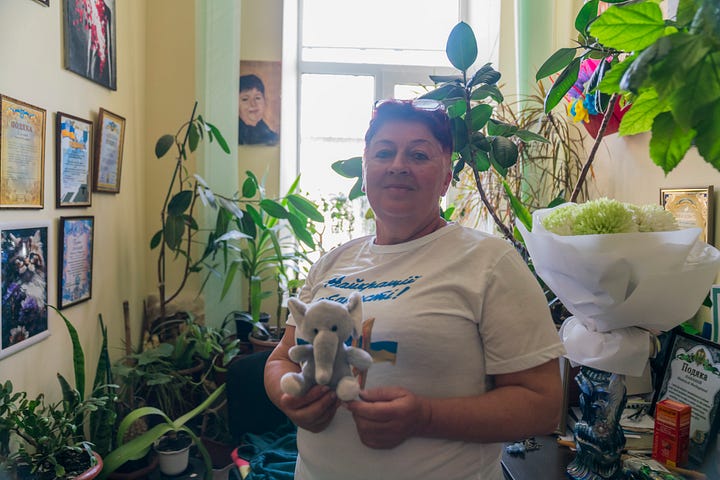


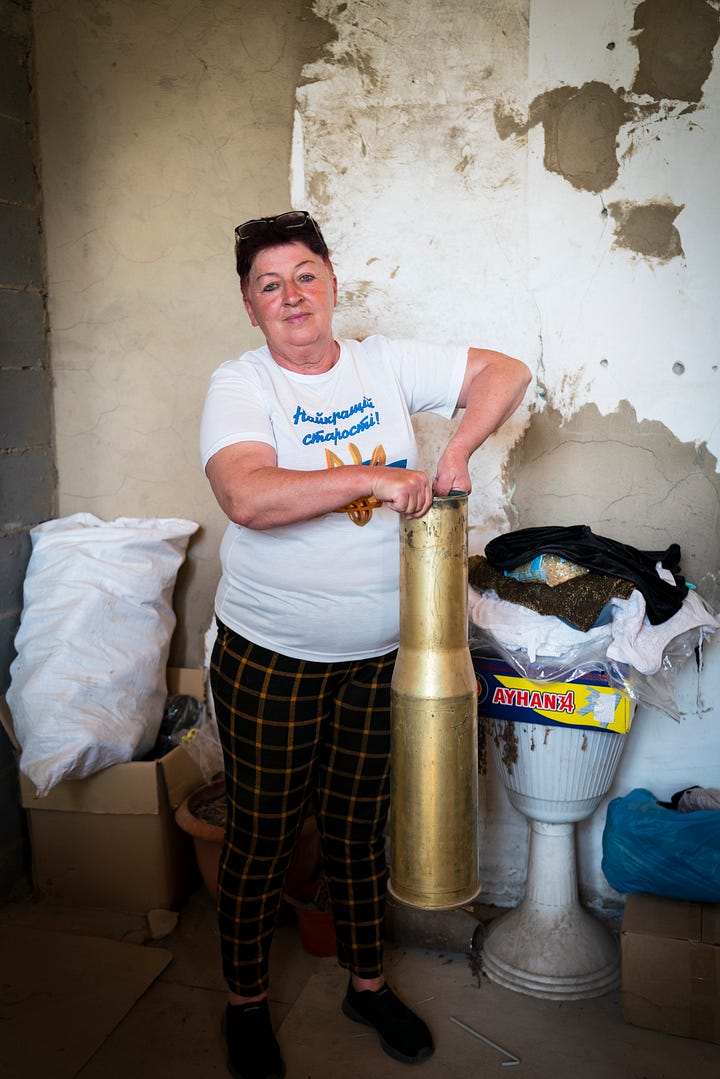
After our quick tour of central Lymany, it was time to head for Lupareve, its satellite village. Twenty-seven houses were destroyed completely during the fighting, and three hundred damaged. On the way to Lupareve, Nataliia told us about the communities’ experience on the front line in spring 2022.
Nataliia: “They began shelling us in earnest on 19 March. But it didn’t reach the village so things were OK. There was safe passage on this road and people were leaving Kherson and heading to Mykolaiv. They tied white rags to their door handles.
It was very scary for us. People began to leave the village en masse on 5 March. By 1 May there were only 202 people here, when there had been 3,500. It was just horrible, horrible. There were no people. Everything was overgrown. Dogs starved, they were running around skeletal. Cats, chickens, then a herd of cows came here from Oleksandrivka [sp?] We had to beat them, shoot them, bury them. We didn’t know what to do with them.
Can you imagine? There were just two people left on the village council, me and a social worker. We didn’t get a day off until 2024. The village is big, 5 km long.
In November 2022, people started to come back. [Our army] had taken Kherson and pushed [the Russians] back. They started to rebuild, to restore the electricity supply.”
Below: a Ukrainian TV news report about Lymany and Lupareve from April 2022.
“The 28th Brigade and the Kirovograd Territorial Defence Brigade lived with us. And after a week I understood that if I did nothing, everything would fall apart. My husband and I began to cook. We fed the dogs. and took them for walks. And in the evening, when there wasn’t shelling, we went to Lupareve. We had ten locations in Lyman where we fed dogs and cats.
By this point there were lots of our lads here, though you didn’t see them. Of course we were hoping the Russians would not reach us. From Lupareve it’s 15 km along the river to the Kinburn Spit. And they shelled Oleksandrivka and Stanislav very heavily. People were leaving en masse. There were a lot of empty houses with electricity, with gas, as people went abroad.
Thirty-seven people lived in the Lupareve school basement for eight months. And on 15 April, the first two civilians died in the shelling. It was terrifying, of course.
In 2023, we started to rebuild, and people began to recover, more of them returned. And in 2024, even more of them. There was one strike on the village, on 6 October, Teachers’ Day. A shell flew right into the yard of one house and damaged five or six others.”
Lupareve is smaller than Lymany, but its situation is more complicated. If you go down to the beach, there are the inevitable warning signs about mines, and also, in the middle distance, a headland from which smoke can sometimes be seen rising. This is the occupied Kinburn Spit, and it’s close enough that the southern part of Lupareve is under threat of drone strikes. When the well-known NGO Building Ukraine Together tried to carry out reconstruction work here, the authorities denied them permission for security reasons.
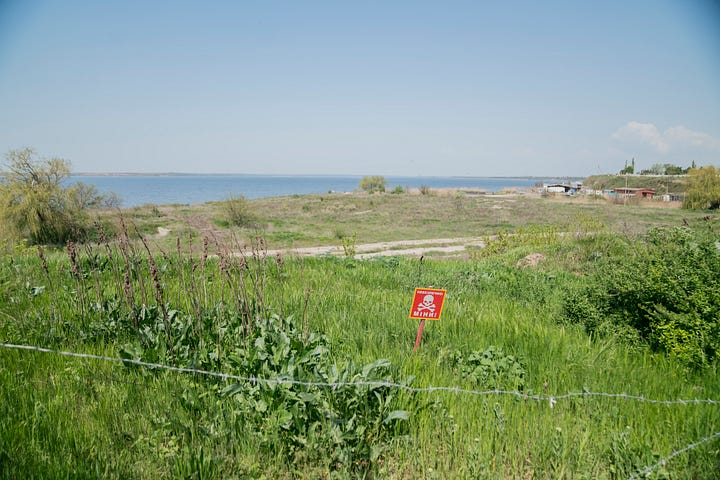
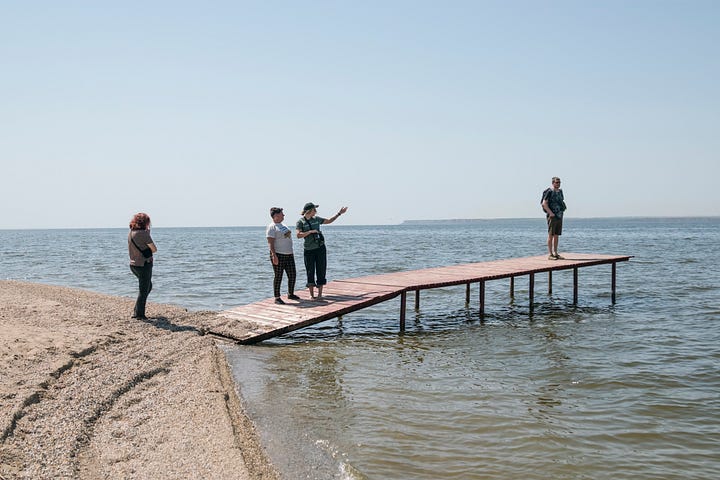

Lupareve is not currently targeted by drones, as there is nothing there of military interest, but Nataliia is keen both to rebuild the village and keep the danger in mind.
Nataliia: “ I always tell people, don’t forget that we’re at war. The closer it is, the worse for us. So we suffer and wait. We suffer, and wait and help [each other]. If we don’t help each other, the Russians will be on us tomorrow.
I try to tell that to people who aren’t pro-Ukraine, who are waiting for Putin – we try to find such people and work with them. Though when the war began, in 2022, after just a month twelve people were taken away [by Ukrainian security services]. I just don’t care about them. The hell am I waiting for Putin, to shower him with flowers. this is our Ukraine and there won’t be another.”




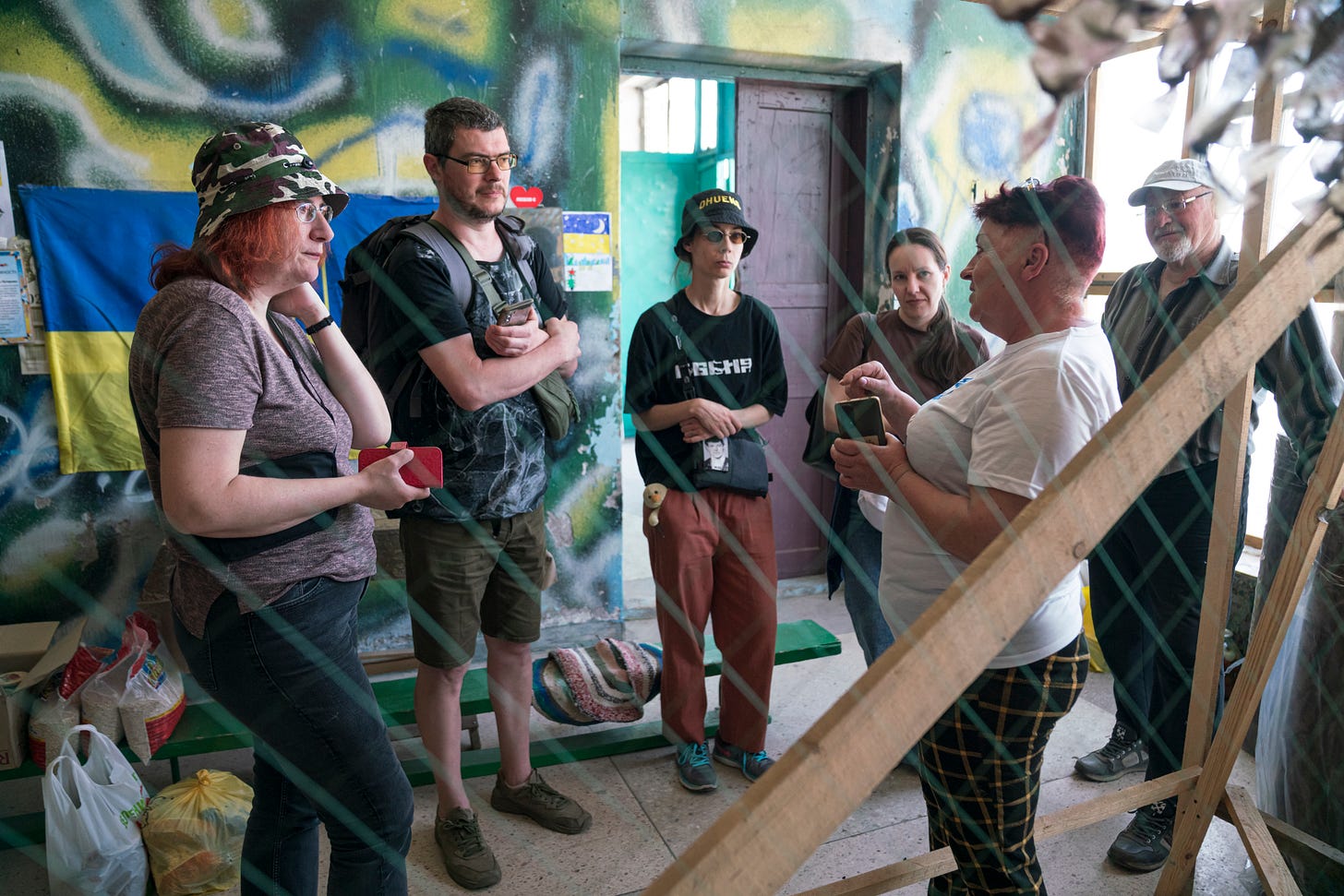
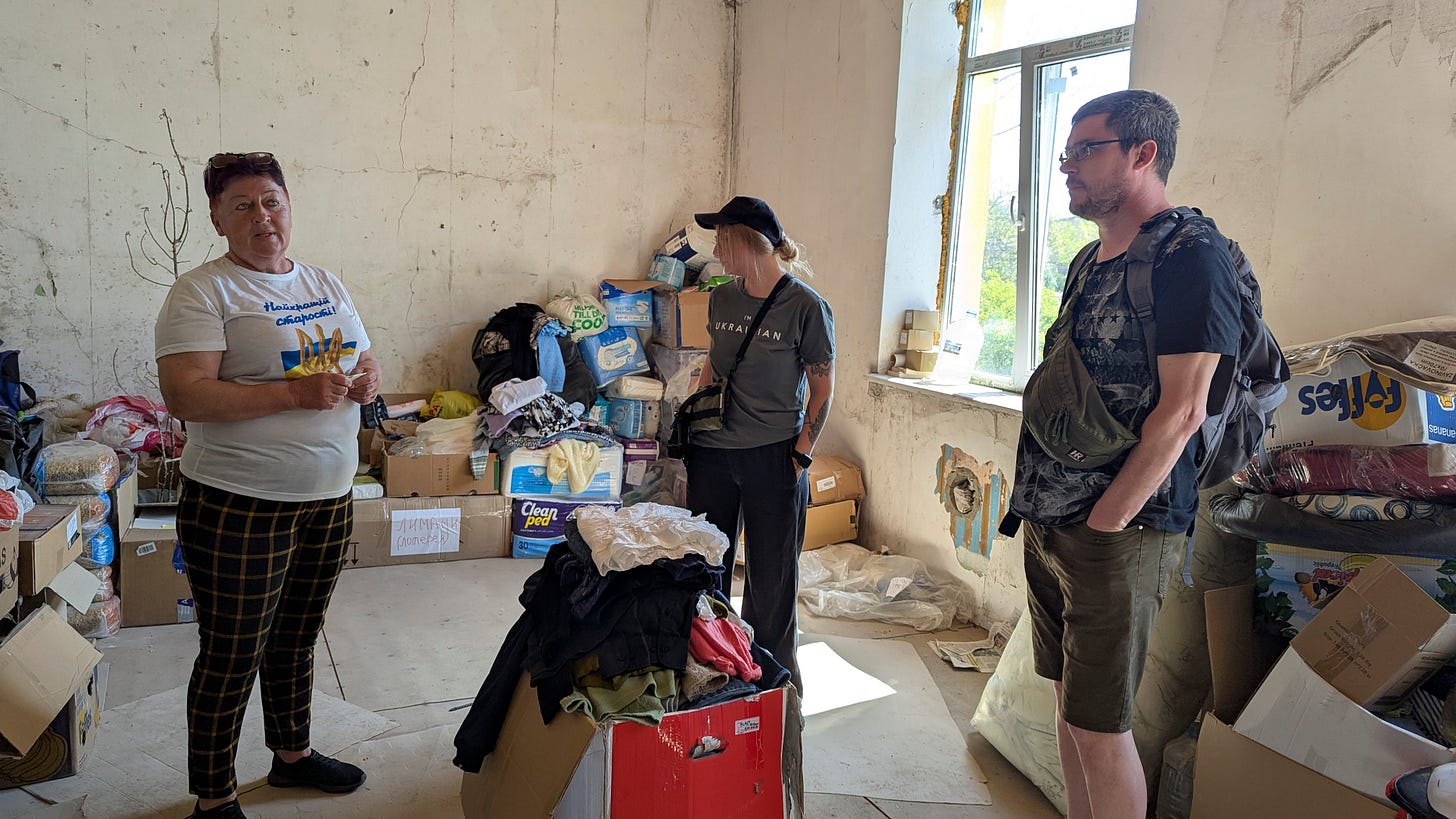
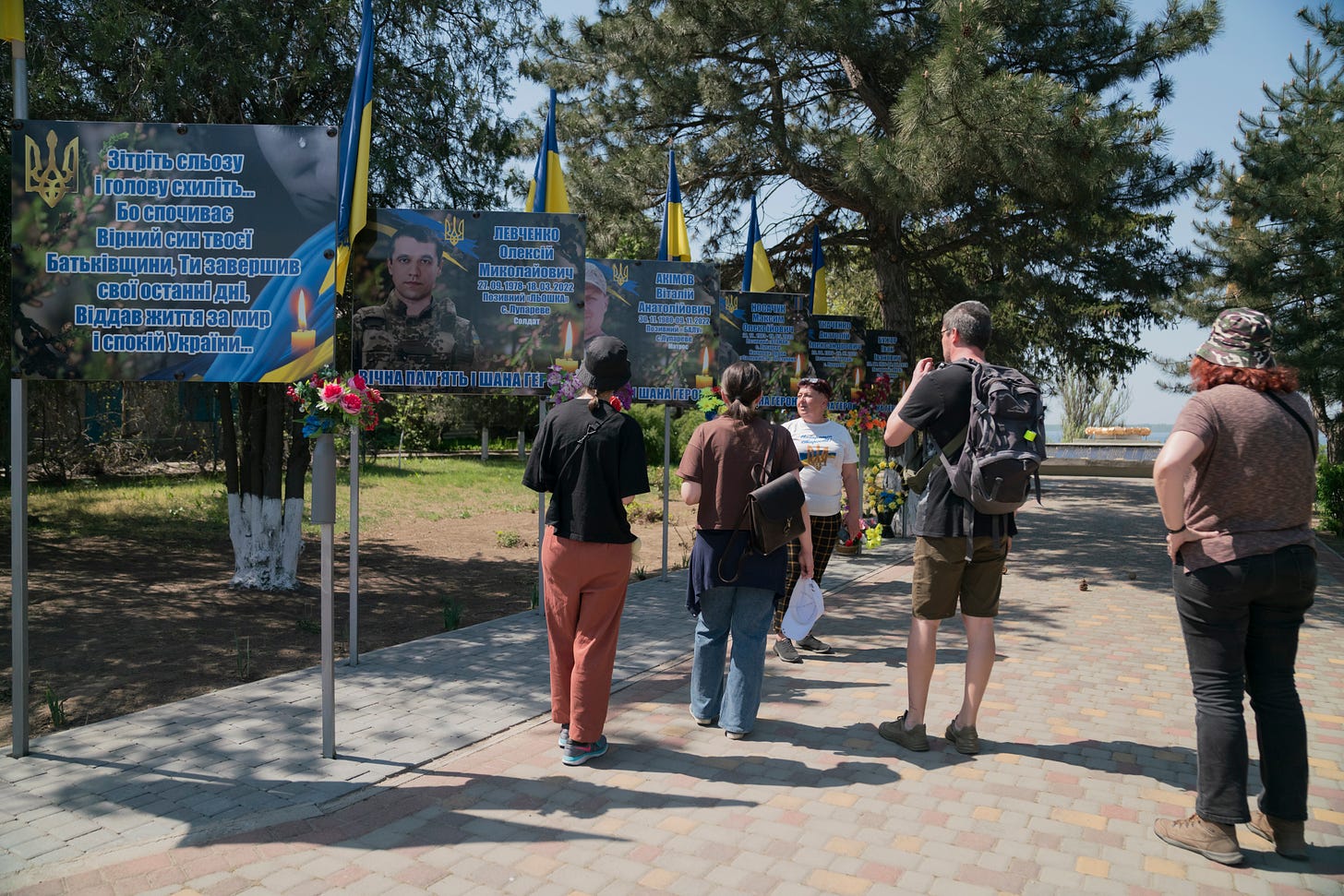
That is the only breed of elephants which should ever be involved in a war...